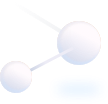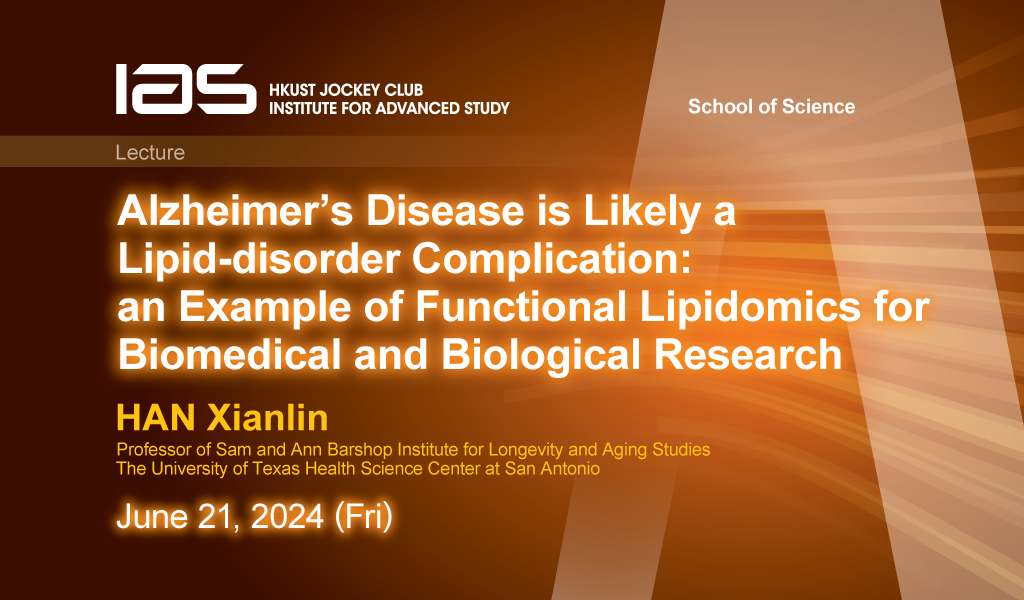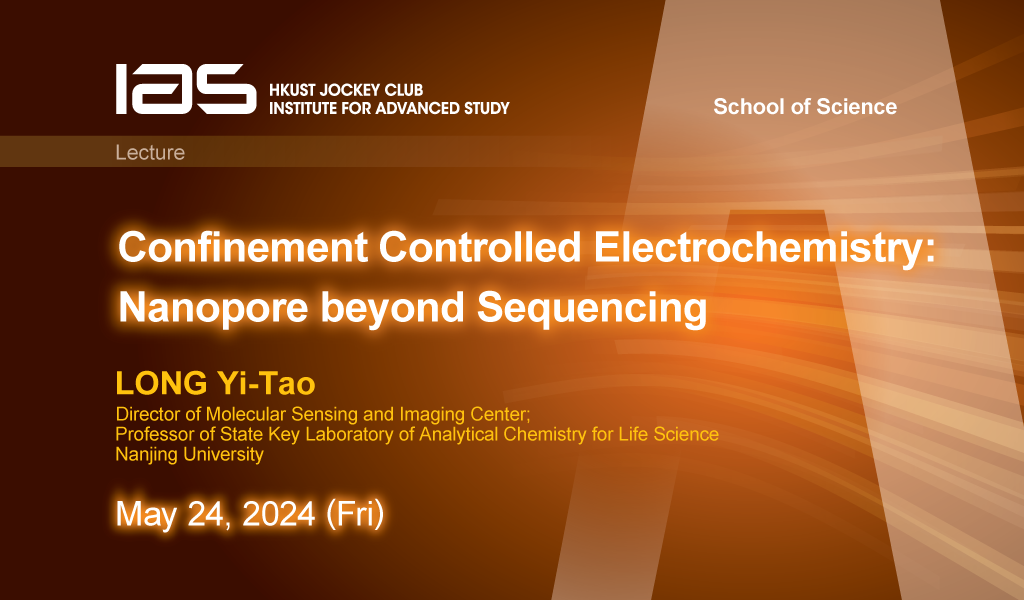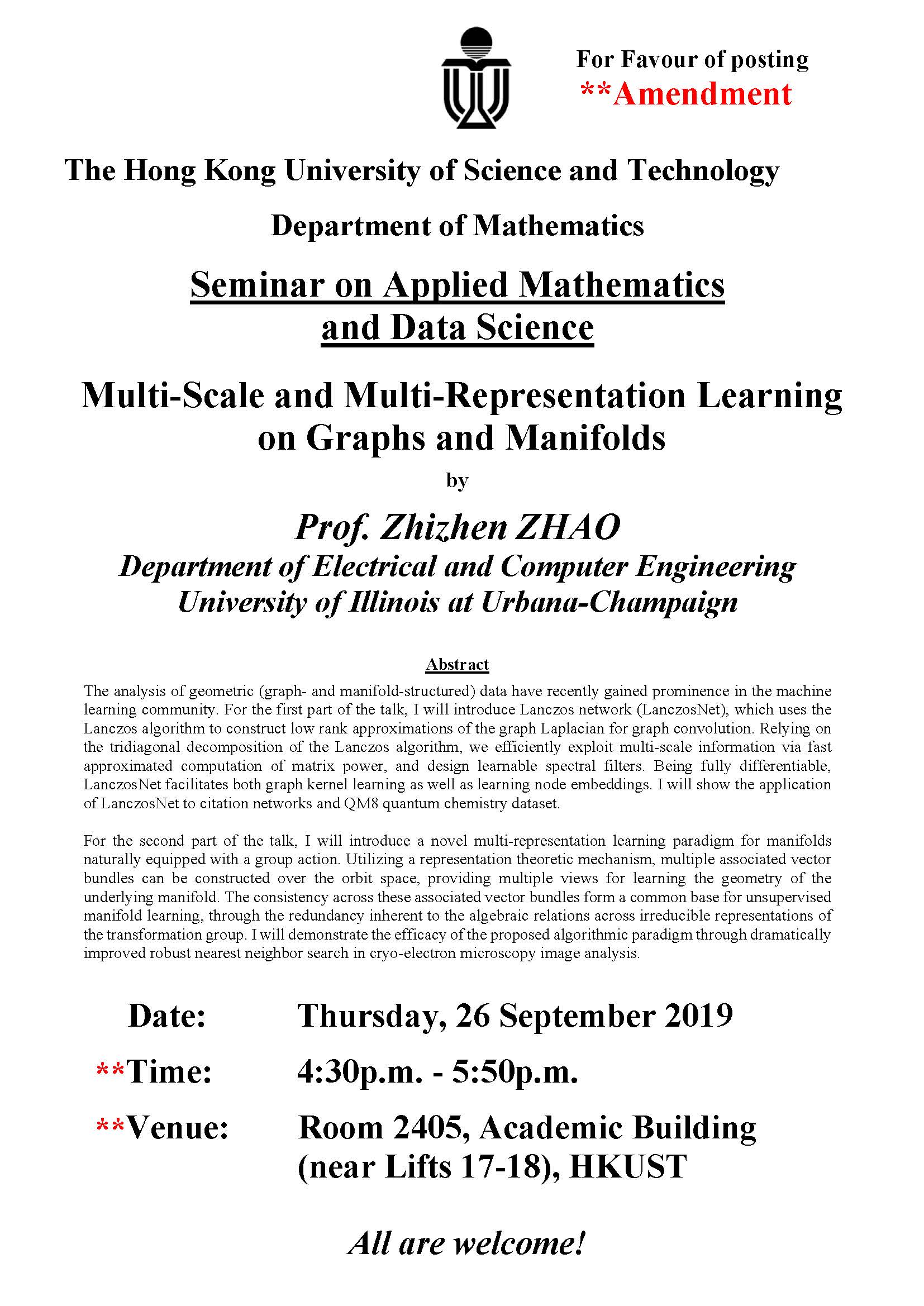The analysis of geometric (graph- and manifold-structured) data have recently gained prominence in the machine learning community. For the first part of the talk, I will introduce Lanczos network (LanczosNet), which uses the Lanczos algorithm to construct low rank approximations of the graph Laplacian for graph convolution. Relying on the tridiagonal decomposition of the Lanczos algorithm, we efficiently exploit multi-scale information via fast approximated computation of matrix power, and design learnable spectral filters. Being fully differentiable, LanczosNet facilitates both graph kernel learning as well as learning node embeddings. I will show the application of LanczosNet to citation networks and QM8 quantum chemistry dataset.
For the second part of the talk, I will introduce a novel multi-representation learning paradigm for manifolds naturally equipped with a group action. Utilizing a representation theoretic mechanism, multiple associated vector bundles can be constructed over the orbit space, providing multiple views for learning the geometry of the underlying manifold. The consistency across these associated vector bundles form a common base for unsupervised manifold learning, through the redundancy inherent to the algebraic relations across irreducible representations of the transformation group. I will demonstrate the efficacy of the proposed algorithmic paradigm through dramatically improved robust nearest neighbor search in cryo-electron microscopy image analysis.
For the second part of the talk, I will introduce a novel multi-representation learning paradigm for manifolds naturally equipped with a group action. Utilizing a representation theoretic mechanism, multiple associated vector bundles can be constructed over the orbit space, providing multiple views for learning the geometry of the underlying manifold. The consistency across these associated vector bundles form a common base for unsupervised manifold learning, through the redundancy inherent to the algebraic relations across irreducible representations of the transformation group. I will demonstrate the efficacy of the proposed algorithmic paradigm through dramatically improved robust nearest neighbor search in cryo-electron microscopy image analysis.
26 Sep 2019
4:30pm - 5:50pm

Where
Room 2405, Academic Building (near Lifts 17-18), HKUST
Speakers/Performers
Prof. Zhizhen ZHAO
Department of Electrical and Computer Engineering, University of Illinois at Urbana-Champaign
Department of Electrical and Computer Engineering, University of Illinois at Urbana-Champaign
Organizer(S)
Department of Mathematics
Contact/Enquiries
mathseminar@ust.hk
Payment Details
Audience
Alumni, Faculty and Staff, PG Students, UG Students
Language(s)
English
Other Events

21 Jun 2024
Seminar, Lecture, Talk
IAS / School of Science Joint Lecture - Alzheimer’s Disease is Likely a Lipid-disorder Complication: an Example of Functional Lipidomics for Biomedical and Biological Research
Abstract
Functional lipidomics is a frontier in lipidomics research, which identifies changes of cellular lipidomes in disease by lipidomics, uncovers the molecular mechanism(s) leading to the chan...

24 May 2024
Seminar, Lecture, Talk
IAS / School of Science Joint Lecture - Confinement Controlled Electrochemistry: Nanopore beyond Sequencing
Abstract
Nanopore electrochemistry refers to the promising measurement science based on elaborate pore structures, which offers a well-defined geometric confined space to adopt and characterize sin...

